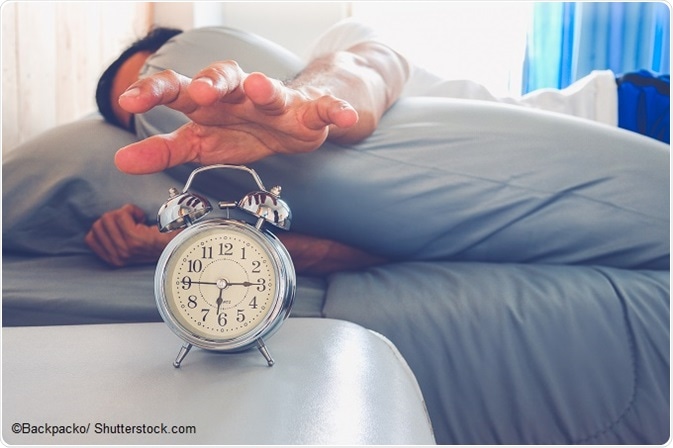While it is tempting to stay up late on weekdays trying to get everything done, and then sleep in on weekend mornings to ‘catch up’ on sleep, more and more studies are demonstrating that this is simply not possible. In other words, sleeping extra to make up for earlier sleep deprivation does not result in a return to normal attention spans, muscle reaction times, or concentration.
The effects of lost sleep linger for a very long time, in terms of performance and attention deficits. It is also noteworthy that the sleep-deprived person finally loses the ability to gauge the level of sleepiness, and falsely thinks of himself as functioning normally when performance indicators are way down.

Catching up on sleep
In order to slowly and surely catch up on lost sleep, it is necessary to adopt a long-term plan. The first thing is to calculate roughly how much sleep you missed. Now you will have to add on extra sleep every day, and more over the weekend, until you have made up the lost sleep fully. Now your sleep debt is zero.
If you are a chronic short-sleeper, the above plan will take weeks or months to pay off the sleep debt. Instead, it would be wise to take a short vacation, where you can plan your own schedule. It is important that you not cram your days and nights with activity. Now it is possible to sleep as much as you want, until you wake on your own feeling rested.
The alarm clock should not be allowed to end your make-up sleep artificially. At first, you may be startled to find yourself sleeping 12 hours or even more every night, but this will usually reduce bit by bit as your sleep debt decreases, till you are finally sleeping just how much you need to sleep on a regular basis.
Once the sleep debt is cancelled, you need to avoid getting into a new debt by making time for the amount of sleep you need each day. Adopt good sleep hygiene to ensure ideal sleeping conditions, including a regular bedtime and wake time. If you miss sleep, get the extra hours that very weekend.
Taking a nap works for many people, but others find it interferes with their night sleep. As with many other health decisions, napping is an activity that individuals must work with on their own to find out how it suits them.
Tips for shift workers
Shift workers, in one study, could not get back to their earlier performance standards following a period of sleeping only six hours a day, even with ten hours of catch-up sleep. This means they may need to take proactive steps to ensure they sleep well as soon as they get home and into bed. This may include:
- Blocking out sunlight with dark glasses, to prevent melatonin stimulation which disrupts the circadian rhythms
- Maintain your wake and sleep time routines unchanged throughout the week
- Keep your environment quiet and dark, or put on a mask over your eyes and soft earplugs to block out noise if you share a room or home with others
Sleep hygiene
Sleep hygiene must be observed, in case you are not already enjoying an environment that fosters sound sleep. This includes setting realistic and adequate sleep times, and avoiding factors that hinder sleep including large or spicy meals, and intense exercise, within three hours of bedtime.
References
- https://sleepfoundation.org/sleep-news/you-cant-catch-sleep
- http://www.health.harvard.edu/womens-health/repaying-your-sleep-debt
- https://www.nhs.uk/
Further Reading
Last Updated: Dec 29, 2022